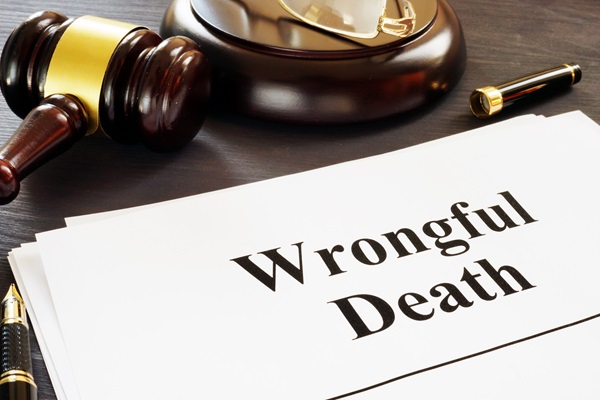
Losing a loved one is a painful experience, one that can bring both emotional and financial challenges. When the loss was caused by the negligent actions of another party, families have the right to seek justice and accountability.
If you’ve lost a loved one due to someone else’s negligence or intentional actions, you may be considering filing a wrongful death lawsuit in Maine. It’s important to be aware of the legal time limits for taking action, known as statutes of limitations. These deadlines can have a significant impact on your ability to pursue justice and compensation.
What is considered a wrongful death?
Under Maine law, a wrongful death is considered one caused by the “wrongful act, neglect, or default” of another party, and the deceased person would have been entitled to bring a personal injury lawsuit if they had survived.
Key elements of wrongful death cases in Maine can include:
- Negligence: The death results from another party’s failure to exercise reasonable care, such as in cases of car accidents or medical malpractice.
- An intentional act: Death caused by intentional harm, such as assault or homicide, may qualify as wrongful death.
- Strict liability: Death resulting from defective products or hazardous conditions, even in the absence of negligence, could be considered wrongful death.
What is the statute of limitations for a wrongful death case?
In Maine, the statute of limitations for wrongful death claims was revised in 2023 to expand the window of time for filing a lawsuit. The statute of limitations is now three years from the date of death, which means legal action against another party must be taken within that period.
However, if the death resulted from a homicide, the timeframe differs. In such cases, the wrongful death action may be taken within six years from the date it is discovered that there is a just cause of action against the person who caused the homicide.
When is the best time to file a wrongful death lawsuit?
It’s important to take action on a wrongful death claim as soon as possible for several reasons:
- Failing to file within the statute of limitations usually results in losing your legal right to pursue compensation, leaving you unable to recover damages for your loss.
- Evidence critical to your case – such as medical records, witness statements, surveillance footage, and physical evidence – can be lost, destroyed, or degraded over time. This can make it more difficult to establish liability.
- Memories of witnesses may fade, and key details may become unclear, weakening the strength of your case.
- Families who lose a loved one often face unexpected financial burdens, such as funeral expenses, medical bills, and loss of income. Prompt legal action can help secure compensation sooner to alleviate these financial pressures.
- Acting quickly allows your legal team to conduct a thorough investigation, identify liable parties, and build a strong case.
Who can file a wrongful death claim in Maine?
According to Maine law, the claim must be filed by the personal representative (executor) of the deceased person’s estate. This representative is typically appointed in the deceased’s will or by a court if there is no will.
While the claim itself is filed by the personal representative, the damages awarded are distributed to specific beneficiaries as outlined by Maine law. The beneficiaries are typically the deceased’s heirs or close family members such as spouses, children, and parents.
How much compensation can I recover?
Loved ones can seek compensation for economic damages, which are quantifiable financial losses. These include:
- Medical expenses: Costs incurred for the deceased’s medical care prior to death.
- Funeral and burial expenses: Reasonable costs associated with laying the deceased to rest.
- Loss of income and support: The deceased’s expected earnings and benefits that would have contributed to the family’s financial support.
A wrongful death lawsuit can also seek compensation for non-economic damages, which are intangible losses such as loss of comfort, society, companionship, and emotional distress. The current cap for non-economic damages is $1,000,000, adjusted annually for inflation.
In cases involving particularly egregious conduct, punitive damages may be awarded to punish the at-fault party and deter similar behavior. The cap for punitive damages is $500,000.
A Maine wrongful death attorney can guide you through the process
Recovering financial compensation in a wrongful death lawsuit is a complicated process, and insurance companies use many different tactics to minimize claims. That’s why it’s important to have experienced legal representation.
The wrongful death attorneys at the Law Offices of Joe Bornstein in Maine can help. We can handle all aspects of your case so you can focus on your family. Our lawyers will keep you informed of the progress of your claim and answer any questions you have along the way. We have a long history of getting results for clients, with over $750 million collected for injured Mainers.
Learn more about your legal rights and options by contacting us to schedule a free and confidential case evaluation. We are here to help.
“Words could never express how much you’ve helped me and how grateful I am for everything you’ve done for me. Your law firm is so helpful, caring, and compassionate.” - Actual Client, Lewiston ⭐⭐⭐⭐⭐



